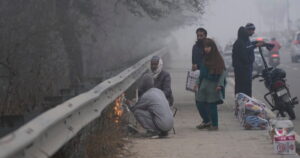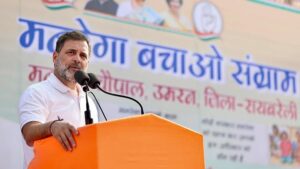Warning: Your Smartphone May Be Messing With Your Mind

Extreme digital addiction is associated with a near-surety of mental health struggle (David/Pixabay CC0)
Generation Z, born between 1997 and 2012, is the first cohort to grow up as digital natives. With the pervasive adoption of smartphones, there is heightened concern over digital addiction and its impact on mental well-being, especially on those aged 18 to 24.
According to data from the Global Mind Project, which hosts the world’s largest database of comprehensive mental health profiles, there is a concerning correlation between the age at which individuals first owned a smartphone and their adult mental well-being.
Mental well-being is defined here as the ability to effectively navigate life’s stresses and challenges, measured across 47 dimensions of mental function.
The younger they obtain a smartphone, the more likely people are to have mental health struggles as young adults. These include suicidal thoughts, a sense of feeling detached from reality, feelings of aggression towards others and addiction.
Those who received smartphones earlier in childhood are also more likely to be digitally addicted as young adults. Data collected as part of the Global Mind Project, which offers the first insights into the scale of this phenomenon in India, indicates that among the 18-24 set, 12.5 percent suffer digital addiction in 2024, up from about 9.3 percent in 2021. (The data is publicly available, and a login ID can be requested).
The more digitally addicted they are (based on a question about addictions rated along a 1-9 scale), the worse their mental well-being as shown by their Mental Health Quotient (MHQ) scores.
The MHQ positions individuals on a spectrum from Distressed to Thriving, spanning a possible range of scores from −100 to +200, where negative scores indicate a mental well-being status that has a significant negative impact on the ability to function.
About 40 percent of Indian youth who are not at all addicted are clinically mentally distressed/struggling while the corresponding number for those that are extremely addicted is 90 percent, according to Global Mind data. Thus extreme addiction is associated with a near-surety of mental health struggle.
Digital addiction is also associated with suicidal thoughts or intentions among young people in India. About 55 percent who are not at all addicted have experienced suicidal thoughts or intentions, which is alarmingly high. The number jumps to 80 percent for those who are extremely addicted to digital technology.
Prior work has established that sleep is severely compromised among those with digital addiction – a fact corroborated by data. About 5 percent of young people who are not at all addicted to digital technology report that they hardly ever sleep, while over 14 percent who are extremely addicted to technology report they hardly ever sleep. This is an almost three-fold increase and likely contributes to other mental health challenges as sleep is fundamental for healthy brain functioning.
How we might curb the menace
Our previous analysis offers some insights.
With the age of the first smartphone so strongly associated with addiction and other mental health challenges, parents could aim to delay the age of smartphone ownership to as late as possible.
Since children feel tremendous peer pressure to have a smartphone one way this can be handled is by schools banning their use until as late as possible. Many countries are now actively considering bans on smartphones in schools, while schools are also beginning to develop their own bans.
Public health education on the harmful effects of excessive use of digital technology as well as other types of interventions is needed.
We could learn from the approach to smoking.
In India, massive anti-tobacco campaigns have been launched in schools. Cigarette taxes have been used to curb demand. These efforts have reduced cigarette consumption.
Similarly, one study found that exercise may be used to reduce the incidence of digital addiction by regulating the neurobiology of the central and autonomous nervous systems.
Regulating addictive apps aimed at children, akin to China’s restrictions on video games until age 18, could be beneficial. Recently, US Surgeon General Vivek Murthy has advocated for warning labels on social media platforms akin to those on tobacco and alcohol products.
Digital addiction is associated with worse mental well-being, higher suicidal tendencies, and poorer sleep habits among 18-24 year-olds in India. This is worrying given that much of India’s projected economic growth hinges on the productivity of the younger generation.
While digital addiction is at 12.5 percent today, it is growing. There is evidence that delaying the age of ownership of smartphones improves mental well-being while reducing suicidal thoughts and intentions.
Taken together, greater attention could be paid to understanding how one might curb addiction to digital technology including school policies, parental controls, public health messaging and programs and regulation.
(Originally published under Creative Commons by 360info™. Read the original article here)





